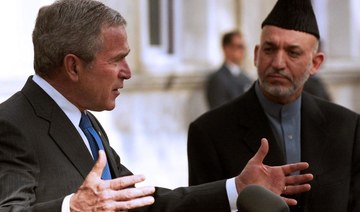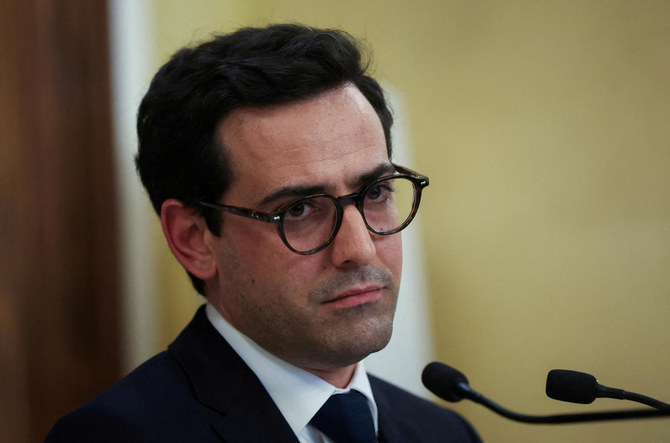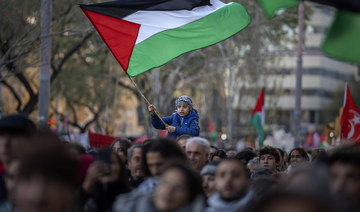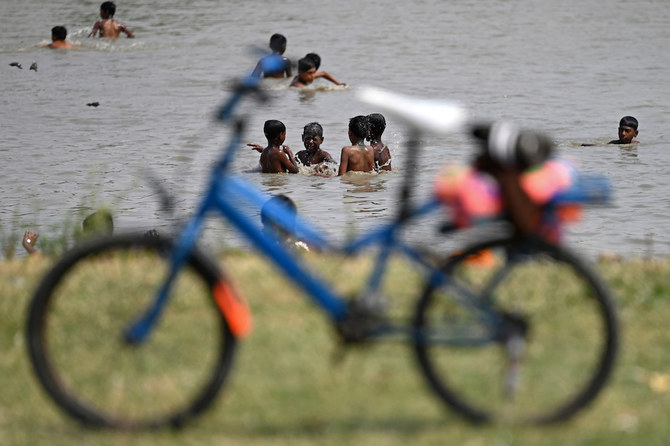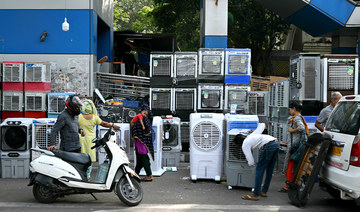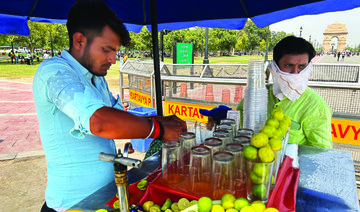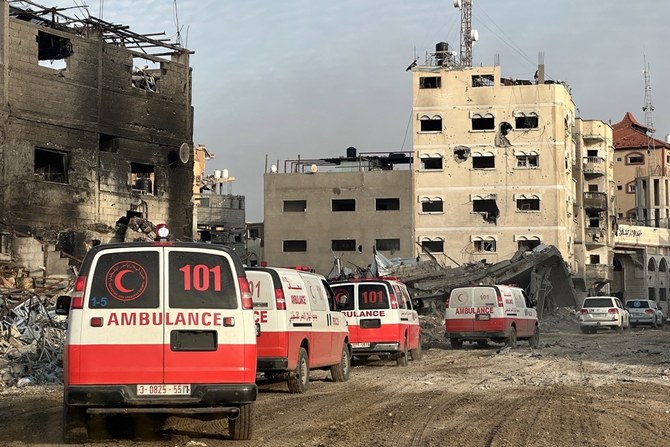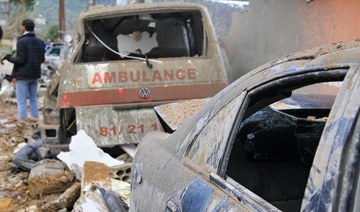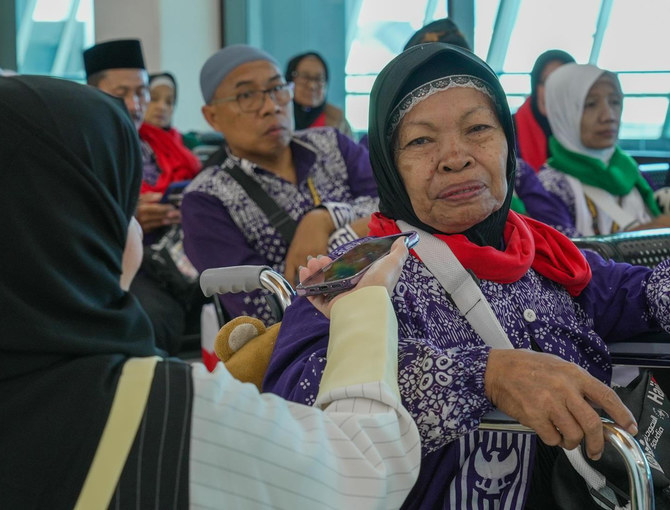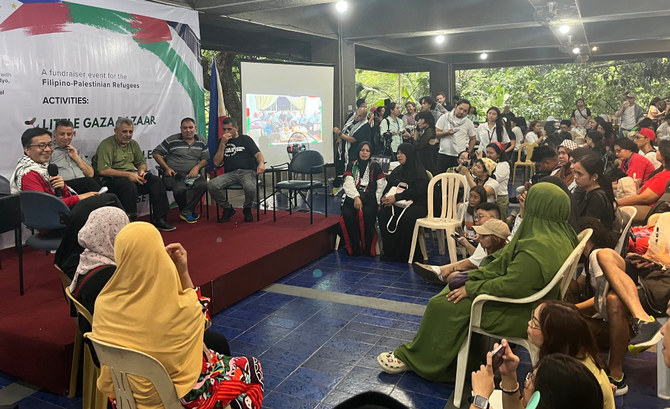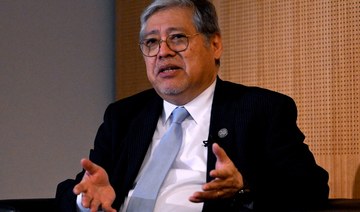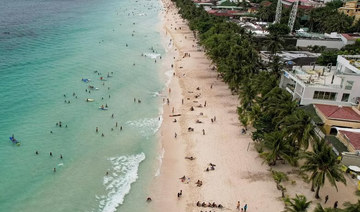TERMEZ: When Sami Elbigi heard about the Taliban’s advance toward Mazar-e-Sharif, a city in northern Afghanistan that has been the main hub of anti-Taliban resistance, he knew it was time to run.
He took his phones, a suit and some clothing and kissed his mother goodbye. A thought crossed his mind that might be the last time he will ever see her.
Elbigi, 30, left his Afghan hometown of Hairatan and rushed to the Uzbek border. He still had a valid business visa due to his profitable cross-border oil company, so entering Uzbekistan wasn’t a problem. But he was one of the lucky few who managed to find refuge in the ex-Soviet republic in recent days — those without visas have not been allowed in.
“The Taliban takeover happened so fast, we have not expected that. I still cannot believe it,” Elbigi told The Associated Press, sitting in a cafe in Termez, an Uzbek city close to the Afghan border, with numb disbelief on his face.
“My visa expires in one month, and I don’t know what I will do next. I have no plan. I left everything behind,” he said.
As the Taliban took control of Afghanistan in a swift power grab, thousands of Afghans have been looking for ways to escape what they see as a return of a ruthless fundamentalist rule. But neighboring Uzbekistan appears wary about a flood of Afghan refugees.
Afghan citizens who applied for Uzbek visas in recent months told The Associated Press that Uzbekistan has been refusing visas to Afghans, citing coronavirus concerns.
Experts note that Uzbek authorities have long maintained a tightly closed border with Afghanistan, fearing an influx of extremists, and have only accepted a handful of asylum-seekers from its unstable neighbor.
Since the Taliban controlled Afghanistan in the 1990s, “the Uzbek government has continually refused to sign and ratify the Refugee Convention — one of the most widely observed treaties in the world — which would require it to provide some type of processing and protection to those seeking asylum out of fear of persecution,” said Steve Swerdlow, a human rights lawyer and associate professor of human rights at the University of Southern California.
The Taliban’s advances in Afghanistan in recent months made several Central Asian nations nervous, prompting authorities in Uzbekistan and Tajikistan to ramp up border security. Afghanistan borders Iran, Pakistan, Turkmenistan, Uzbekistan, Tajikistan and a tiny strip along China’s Xinjiang region.
Last week, Uzbekistan, Tajikistan and Russia finished joint military drills in the Tajik region of Khatlon, 20 kilometers (12 miles) from the Afghan border. On Tuesday, the Russian military started another exercise in Tajikistan. China and Russia held joint military exercises last week in northwest China.
But the slow vibe of the southern Uzbek city of Termez bears few traces of the unfolding crisis across the border. A few Afghans in traditional two-piece garments walk down the streets but city life continues undisturbed.
Termez, a largely Persian-speaking city, has long been a town of choice for many Afghans moving to Uzbekistan.
Together with the UN Development Program, the Uzbek government in 2019 opened the Termez Center for Education in Afghanistan, a place where Afghan girls facing hurdles in education could continue their studies. Men from northern Afghanistan have also set up businesses in the city.
For the past three years, Fayzad Hasanzoda, 20, and his brother successfully ran a restaurant in Termez. They said they invested $1 million in the venture, which makes their stay in Uzbekistan secure. But despite their high social status in Uzbekistan, they were unable to help their family escape from Afghanistan.
“I applied for a visa for my parents, my brother and sister two months ago. Normally it takes a week to receive it, but we still haven’t gotten any response,” Hasanzoda told the AP. “We want them to join us in Uzbekistan, but it’s not easy.”
Since the fighting in northern Afghanistan intensified, there are regular reports about Afghan soldiers fleeing across the highly guarded border but they are routinely sent back.
The Uzbek Foreign Ministry reported that 84 Afghan servicemen crossed into Uzbekistan on Saturday and asked for assistance. The ministry said it was in touch with Afghan officials regarding their return.
There are exceptions, however. On Aug. 14, Abdul Rashid Dostum, an Afghan army commander, former northern warlord and vice president, crossed into Uzbekistan with a group of followers, which marked his surrender in the fight with the Taliban for control of Afghanistan’s northern districts. His current whereabouts are unclear, but the commander, an ethnic Uzbek, has a house in Termez and has maintained close ties with the Uzbek government.
The Uzbek Foreign Ministry’s news agency, Dunyo, said on Tuesday that media reports about “the alleged presence” of Dostum, as well as another former warlord, Ata Mohammad Noor, and Afghan President Ashraf Ghani in Uzbekistan were, “according to official information, not true.”
On Sunday, an Afghan military plane crashed in Uzbekistan. Two pilots aboard survived and were hospitalized. Official Uzbek reports emerged Monday then were retracted about hundreds of Afghan military troops reaching
Uzbekistan in dozens of aircraft that were forced to land in Termez. The AP could not independently verify those reports.
The “Friendship Bridge” at the Uzbek-Afghan border remains eerily quiet. Local residents say that not even Afghans who live in Uzbekistan are allowed back in these days.
How many Afghan refugees have been taken in by Uzbekistan remains unclear. On Monday, the country’s Prosecutor General’s office said 158 Afghan civilians and soldiers tried to illegally enter Uzbekistan across a river. In the same statement, officials alleged that 22 Afghan warplanes and 24 military helicopters with 585 Afghan troops illegally entered Uzbekistan’s airspace and were forced to land at Termez.
Shortly after, the Prosecutor General’s office withdrew the statement, claiming it wasn’t based on “verified data from relevant authorities.”
On Tuesday, Uzbekistan’s Foreign Ministry warned that any attempts to violate the border would be “harshly suppressed.” The ministry said Uzbek authorities maintained “close contacts” with the Taliban on border issues.
A drive past the Termez Airport showed locals stopping along the road to look at numerous helicopters that were not there the day before — even though it’s impossible to tell from the distance whether they were Uzbek or Afghan military aircraft.
Swerdlow, the human rights lawyer, thinks Uzbekistan should open its borders to desperate Afghan refugees.
“This unfolding crisis — and Tashkent’s current seat on the UN Human Rights Council — underlines how important it is for the US government and other international partners to urge Uzbekistan to implement the (refugee) convention, provide proper aid, and refrain from pushing persons who fear persecution or torture back into Afghanistan,” he said.





